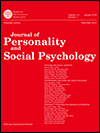Giving help is a generous act, but it can cause psychological distress for the recipients by inducing feelings of dependency, incompetence, or indebtedness. The current research identifies a novel factor—the timing of help in the course of an activity—that modulates the negative effect of help on the recipient’s subjective well-being. Across nine studies, we show that people experience less happiness and satisfaction when they receive help in a later (vs. earlier) stage of an activity. We attribute this timing effect to the recipient’s loss of psychological ownership of the activity; help causes a temporary, perceived shift of ownership from the recipient to the helper, and the recipient perceives a greater loss of ownership after receiving help in a later (vs. earlier) stage. We also identify two theoretical moderators: The effect holds when the activity is pursued for intrinsic reasons (e.g., for enjoyment) but not when the activity is pursued for extrinsic reasons (e.g., out of obligation), and the effect holds when help is dependency-oriented (e.g., providing full solutions) but not when help is autonomy-oriented (e.g., providing tools). Our findings advance the current understanding of how the provision of help can hurt a recipient’s well-being and offer practical insight into when help should be given to minimize such harmful effects. (PsycInfo Database Record (c) 2023 APA, all rights reserved)



